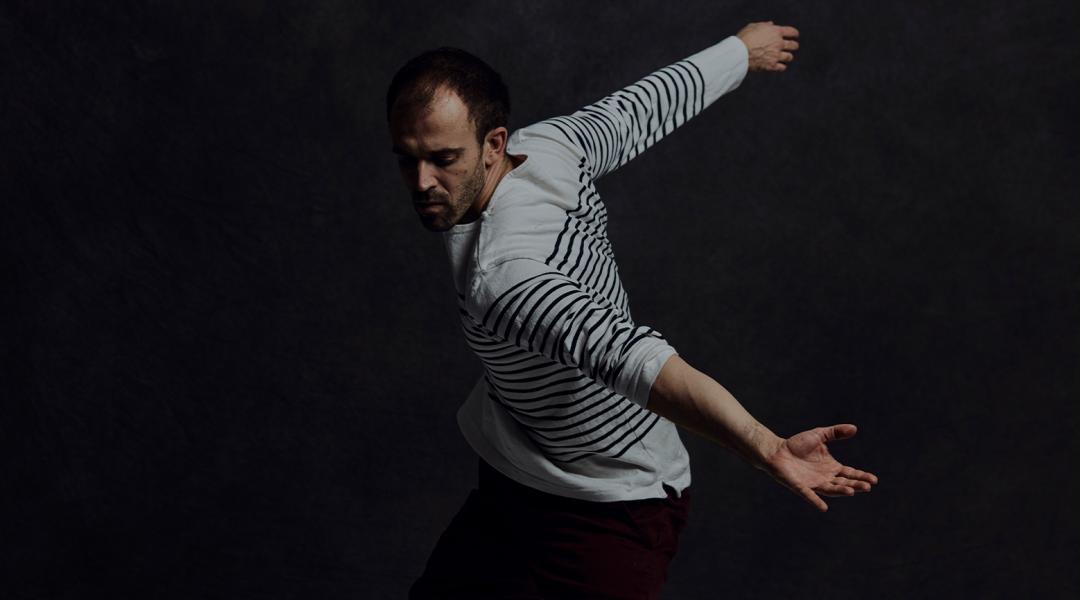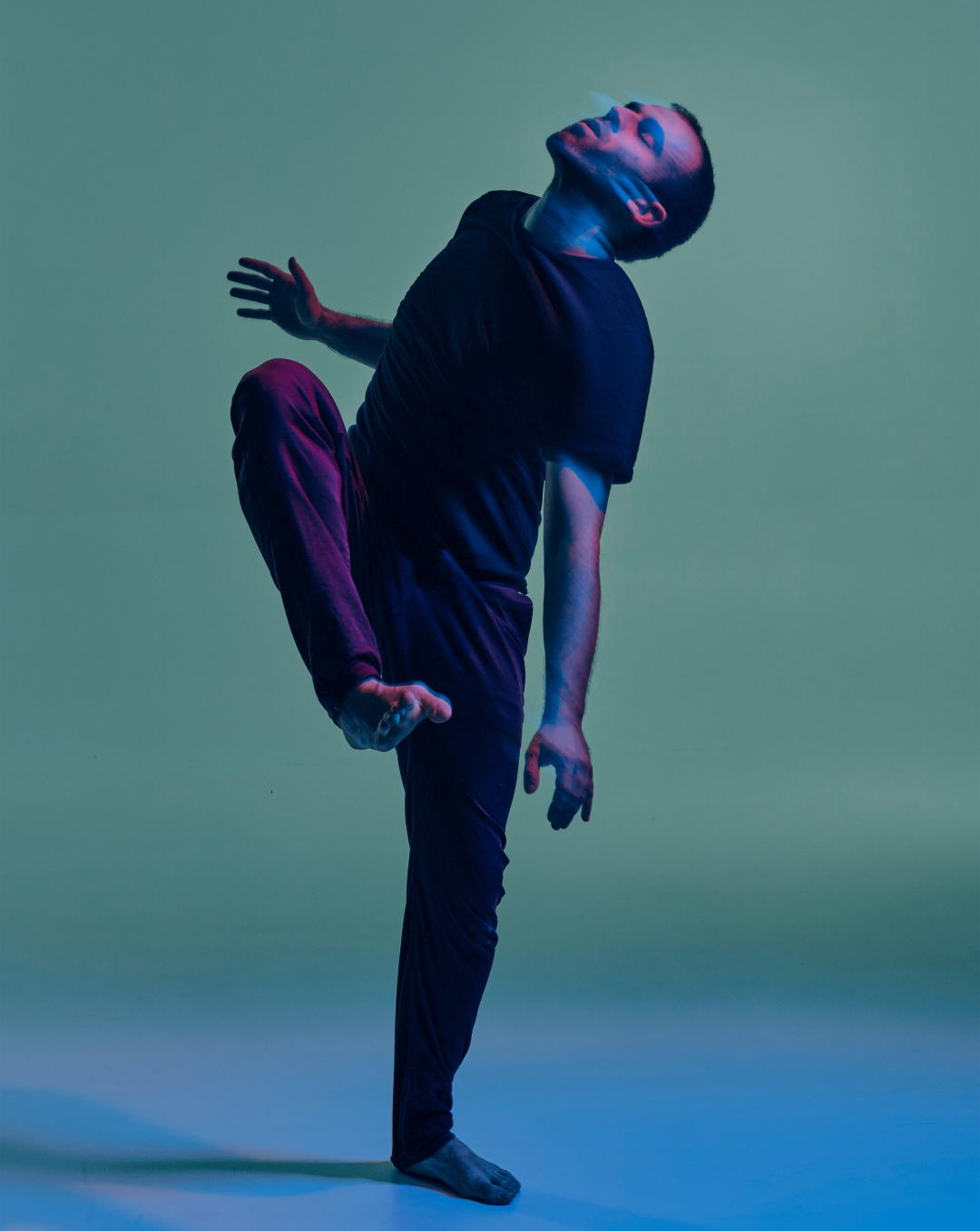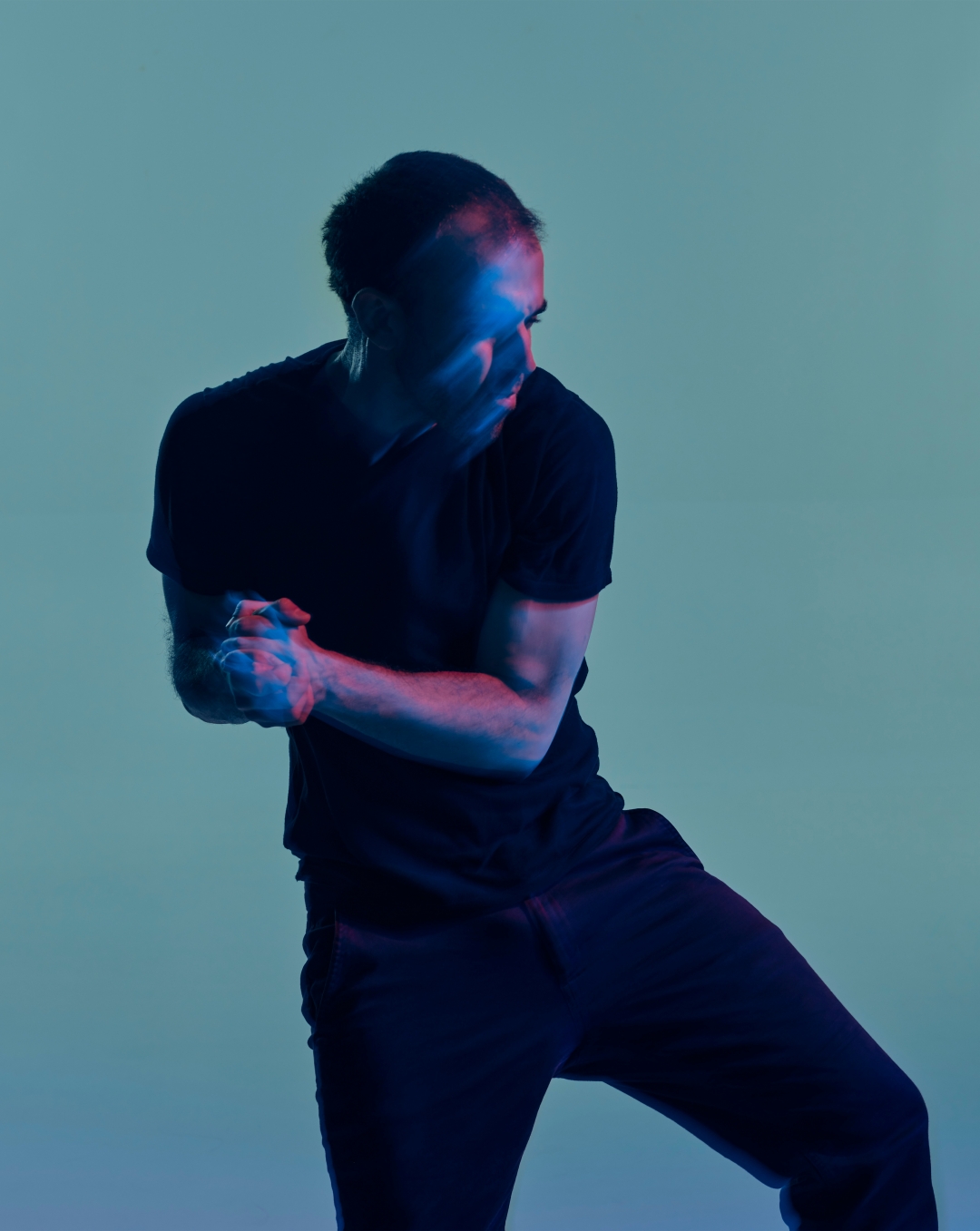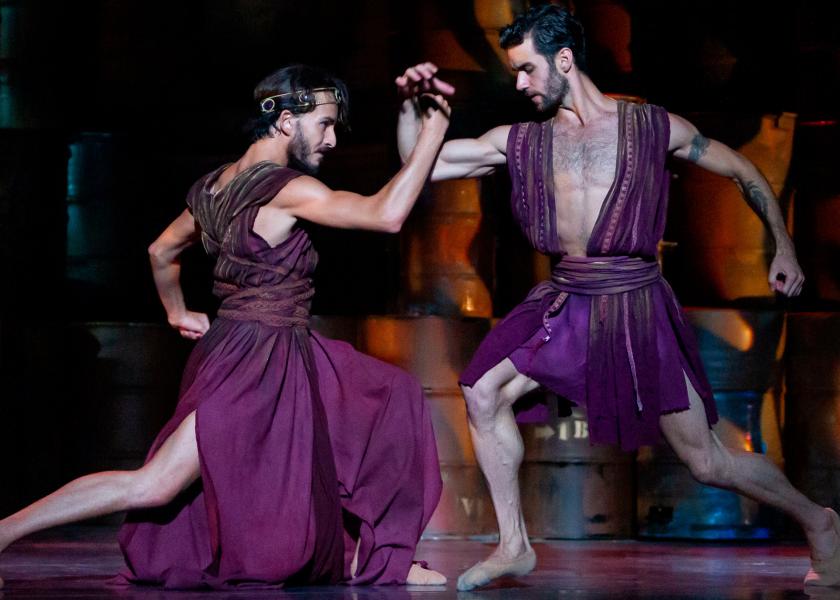Miquel Barcelona
Catharsis on the Stage

Miquel Barcelona was born in San Esteban de Sasroviras (Barcelona), which is also Rosalía’s hometown, but his career has gone a different way. For fifteen years, he has been devoted to what he likes most — dance, whether by creating musicals, singing opera or teaching at the Operación Triunfo Academy, the Spanish version of 'Pop Idol'. Now, he is going back to his alternative essence with [Kórps], a contemporary dance piece influenced by popular tradition and human practices of violence, vigil and death.
If we were to define Miquel Barcelona (San Esteban de Sasroviras, 1983) with a single adjective, that would undoubtedly be multidisciplinary. Any other word would fall short for someone who has dance running through his veins, and who is at once a dancer, a choreographer, a teacher, a project manager, a thinker, a researcher, a singer, an actor, and a writer.
At the age of five or six, he started to sing and dance at home, “where there was no connection with the arts. I would dance and sing intuitively”, he recalls. Supported by his family, he trained in jazz and musical theatre in San Esteban de Sasroviras. “It was easy when I told them that I wanted to do musical theatre, but not so much when I said that what I was really into was dancing.” And he adds: “In fact, it took my father being moved by one of my shows for him to start training his eye in dancing,” he laughs.
“Musicals are usually attributed a lightness that overshadows the rigour that is put into them”
That was when Miquel Barcelona worked in the Spanish adaptation of musicals such as Beauty and the Beast, Mamma Mia and Fame, the Musical, as well as in operas including Il Trovatore, Turandot, Otello and Ángel Corella’s La Gioconda at El Gran Teatre del Liceu. “I think people who work in musical theatre are very complete artists, but there’s a certain contempt towards this artistic discipline because professionals in this sector are not recognized as actors nor as dancers. Musicals are usually attributed a lightness that overshadows the rigour that is put into them. During those years, I wanted to highlight and vindicate that role since I consider myself a hybrid of both disciplines,” he emphasises.
From Operación Triunfo to alternative dance venues
From musical theatre and opera, he went on to dance. He worked with directors, choreographers and dancers such as Carolyn Carlson, Juan Kruz de Garaio Esnaola, Raffaelle Giovanola, Dario Fo and Laura Vilar, among many others. He took his first steps in television as a physical trainer within the subject of Movement in the 8th edition of the Operación Triunfo talent show. “I did it because back then I was working in Mamma Mia and Nina, the show’s Academy’s director, proposed it to me. To be honest, I accepted because I was curious about that world and because I wanted to contribute with my vision.” And, he acknowledges, “the truth is that I had a great time. For people working in musicals, it’s hard to access mass media.”
In parallel to that frenzied activity, he started to build a space for creation, “one of the areas I feel most comfortable with,” he points out, along with his partners from NunArt Creacions Contemporànies, a project he has been involved in for ten years now. “That’s when I started to envision [kórps]”.
“I became a teacher the OT Academy because I was curious about the world and I wanted to contribute with my vision”
A multidisciplinary stage proposal, it revolves around contemporary dance, while at the same time establishing a dialogue with electronic music, vocals, light and theatricality. The show is inspired by crows, the omnivorous and scavenger bird that is most present in mythology and the arts. “Associated with death, it is known for playing a mediating role between the earthly and the spiritual worlds. [kórps] also sounds like the English word for corpse,” he explains. The show is running from 28 February to 1 March at Sala Hiroshima in Barcelona. It will travel to France in May and to Cracow in June before returning to Barcelona that same month.
But this isn’t the only show Miquel Barcelona will premiere in 2020. The Catalan capital and the Girona town of Ripoll will enjoy Parrà, another of his creations, the title being an old Catalan conjugation of the verb apareixerà ('will appear'). Parrà establishes a dialogue between voice and movement, roots and contemporaneity, structure and change through the reimagining of musical pieces such as El cant de la Sibil·la (Mallorca) and dances such as the Polka chinata (Italy).




